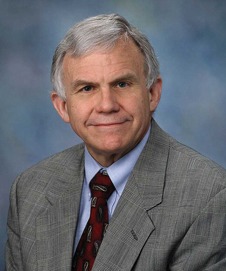All of the society speakers emphasized that this technology must be delivered by heart teams consisting of cardiothoracic surgeons as well as interventional cardiologists, something that has been considered by many as a unique feature of the PARTNER study design.
In the final deliberation, the panel voted 7-3 that the device was safe, 9-1 that the device was effective, and 9-0 (with 1 abstention) that the benefits of the device outweighed the risks. Key elements that were pointed out by dissenting members were the reversed mortality trend seen in the smaller, randomized, "open access" cohort that was not included in the overall analysis; the fear of indication "creep" outside the narrow patient population as a result of having one surgeon as the deciding individual rather than two, as in the PARTNER protocol; and the persistent problem of stroke as a significant safety factor with the device.
The panel and the FDA were extremely concerned that the use of TAVR remain restricted to the narrow PARTNER cohort B population in the use of this particular device. Although some expect that further results of PARTNER in its other cohorts may lead to the search for broader indications, others may wait for the results of the ongoing PARTNER II, which is testing a newer iteration of the Sapien XT device with a smaller delivery profile that may be an improvement with regard to device implantation–related neurologic and vascular events.
The FDA usually follows the recommendations of its advisory panels, but there is no obligation to do so in terms of final device approval.
Only one panel member, Dr. Jeffrey S. Borer, disclosed a potential conflict regarding financial support received by his institution, Cornell University, New York, from Edwards Lifesciences. Dr. Holmes and Dr. Mack stated that they had no relevant conflicts.
Correction, 7/25/2011: An earlier version of this article stated that patients in the control group of the PARTNER Trial Cohort B received palliative balloon angioplasty; they actually received balloon valvuloplasty. Also, Dr. Craig R. Smith was incorrectly referred to as a company spokesperson. This version has been updated.
Correction, 9/12/2011: An earlier version of this article misstated Dr. Augusto D. Pichard's name.


